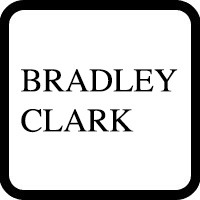Oakland Workout Lawyer, Tennessee
Sponsored Law Firm
-
 x
x

Click For More Info:
-
Fitzgerald & Campbell, APLC
400 N. Tustin Avenue Suite 401 Santa Ana, CA 92705» view mapBankruptcy & Debt Lawyers Who Solve Serious Problems
We are a motivated, respected, and experienced law firm that provides affordable services that get results.
800-732-9061
Not enough matches for Oakland Workout lawyer.
Below are all Oakland Bankruptcy & Debt lawyers.
Bradley Laird Clark
✓ VERIFIEDBankruptcy & Debt
Bradley Clark is a practicing lawyer in the state of Alaska handling Bankruptcy & Debt matters.
Terry C. Cox Cox
Federal Appellate Practice, Estate Planning, Elder Law, Reorganization
Status: In Good Standing Licensed: 47 Years
James Davies Lawson
Insurance, Credit & Debt, Household Mold, Employee Rights
Status: In Good Standing Licensed: 38 Years
Alan Alsobrook
Bankruptcy & Debt, Business & Trade, Bankruptcy, Credit & Debt
Status: In Good Standing Licensed: 17 Years
John R. Windsor
Wills & Probate, Corporate, Bankruptcy, Business Organization
Status: In Good Standing Licensed: 33 Years
Ryan Jacob Velderman
Entertainment, Wills & Probate, Corporate, Reorganization
Status: In Good Standing Licensed: 15 Years
Ryan Jacob Velderman
Entertainment, Wills & Probate, Corporate, Reorganization
Status: In Good Standing Licensed: 15 Years
Ryan Velderman
Entertainment, Wills & Probate, Corporate, Reorganization
Status: In Good Standing Licensed: 15 Years
 Gregory Fitzgerald Santa Ana, CA
Gregory Fitzgerald Santa Ana, CA AboutFitzgerald & Campbell, APLC
AboutFitzgerald & Campbell, APLC Practice AreasExpertise
Practice AreasExpertise

